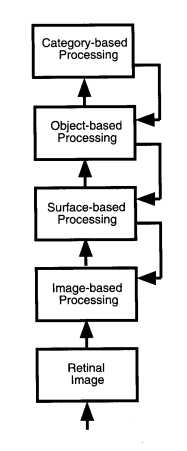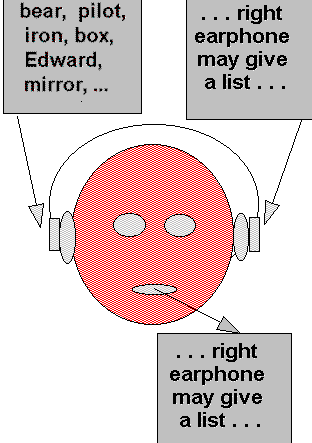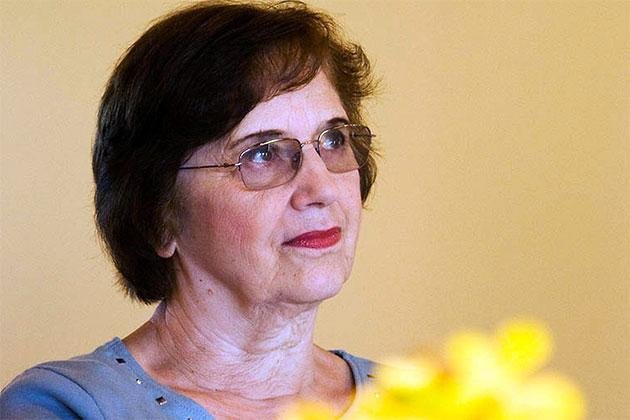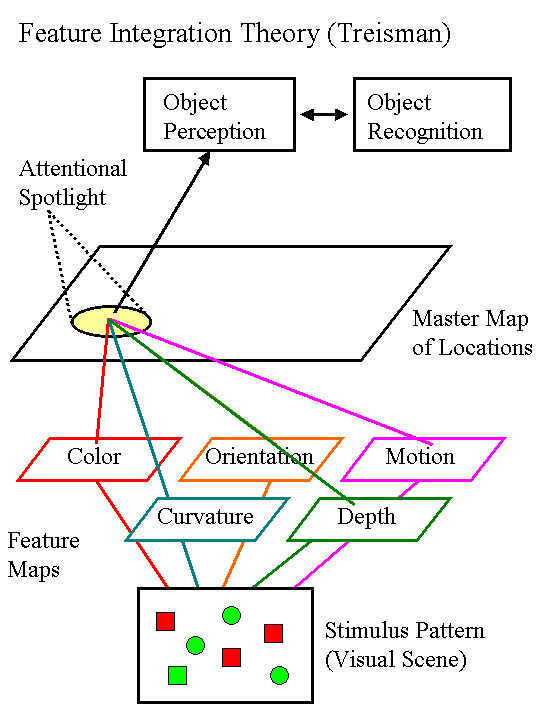Attention as Selection
Selection
Implicit in our everyday concept of attention is the idea that it is a kind of selection.
- Specifically, it is selection by a person.
- We might also add that it is a kind of mental selection.
This selection is part of the way our minds keep from being "overloaded" with the information available to them.

Early or Late?
In the experimental study of perceptual attention, a crucial question has concerned the stage of processing at which attentional selection happens.
- Does selection take place "early", when only low-level features have been processed?
- Or does it take place "late", when high-level features have been processed as well?

"Early" evidence
Some important support for early selection theories came from "dichotic listening" studies, where subjects attended to one of two verbal streams presented to their ears.
- The key finding was that subjects noticed only "low-level" features of the unattended stream, and missed semantic features.

Not so fast!
But further investigation soon revealed that high-level features of unattended information are also processed, at least at times.
- E.g. the "cocktail party effect"
- And Treisman's finding that attention could switch to a new stimulus due to its meaning.


Perception or Memory?
This raises the possibility that the "bottleneck" where attentional selection happens is at the intersection of perception and memory, rather than within perceptual processing itself.
- Cf. the quote by Driver (p. 19)
- We will return to this!

Attention and Load
Lavie's Load Theory of Attention has two crucial features:
- First, that the level of processing capacity devoted to unattended stimuli depends on the "cognitive load" carried by the attention-demanding task.
- Second, that the effects of attentional selection are therefore task-dependent.

Feature Integration Theory
Another influential account of attention is Treisman's Feature Integration Theory.
- On this account, pre-attentive processing identifies features in parallel "maps".
- Attention then functions to "bind" these features together into object representations.
